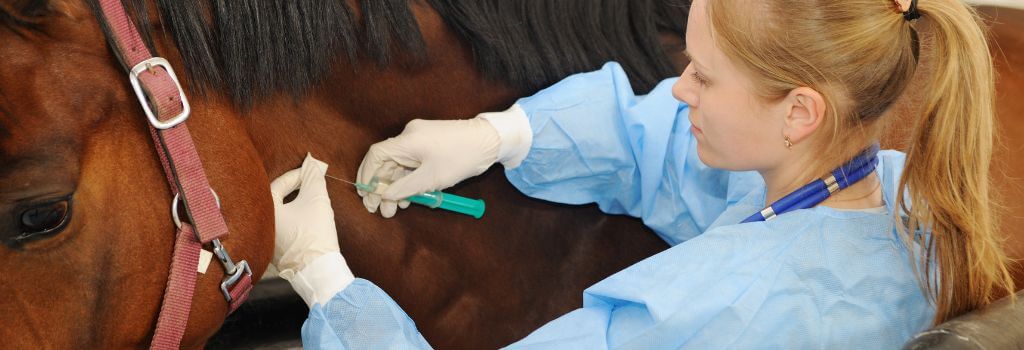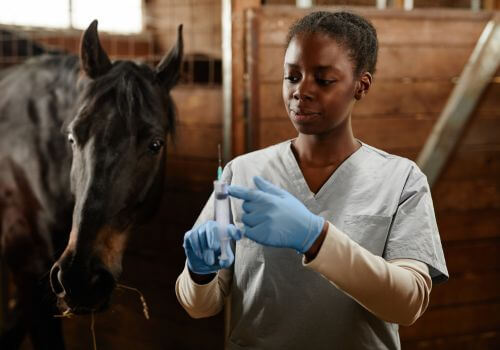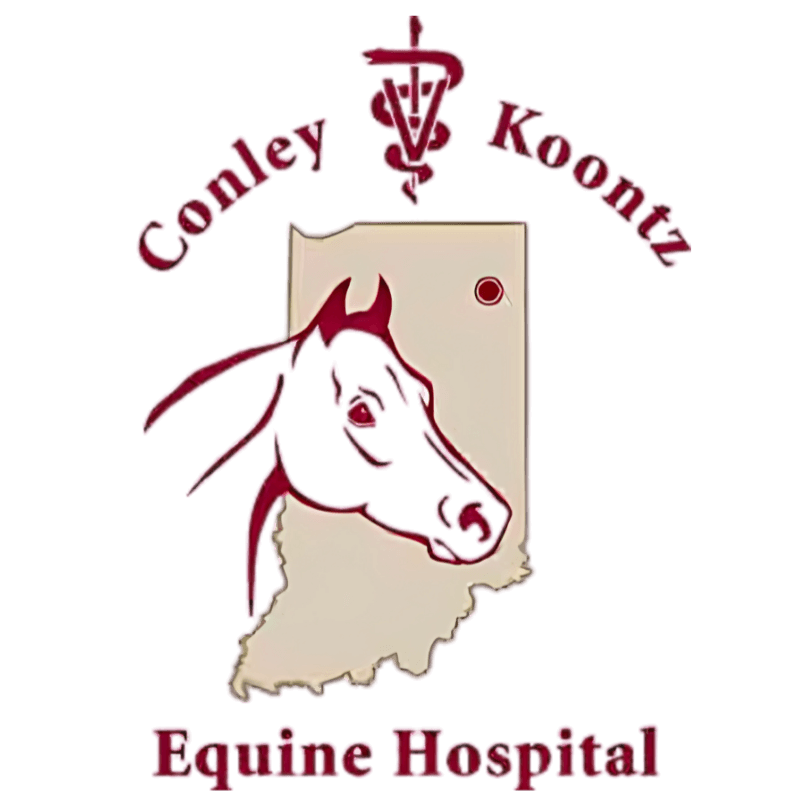Most horse owners understand that vaccines are a part of life. But many do not understand what to vaccinate their horse for and why. There are myths that have been passed down for years that have created certain vaccine beliefs, many of which are harmful to the animals we are trying to protect! Let's debunk 5 of the most common myths I've heard as a veterinarian.
Myth #1: "My Horse Doesn't Go Anywhere, So He Doesn't Need Any Vaccines."
False. There are many diseases that are spread by insects or wild animals, or are inherent in the environment in which horses live. Horse vaccines are typically split into "core vaccinations" – those that every horse should get no matter their herd or travel situation – and "risk-based" – which are determined by many factors, including location, showing, boarding status, etc.
In Northeastern Indiana, core vaccines for horses include Tetanus, West Nile Virus, Eastern Equine Encephalitis (Triple E), Western Equine Encephalitis, Potomac Horse Fever, and Rabies. These are diseases that horses can contract even if they live alone and never travel, since they are spread by organisms in the environment.
Risk-based vaccines for horses include influenza, rhinopneumonitis, botulism, and strangles – these are all diseases that are transmitted from horse to horse or are region/management specific. Your veterinarian should be consulted on which risk-based vaccines are necessary for your horses to ensure they are properly protected.

Myth #2: "A 5-way Vaccine Gets Me Everything I Need."
Maybe – maybe not! A 5-way horse vaccine is a single injection that protects against five different equine diseases, usually a mix of viral respiratory illnesses and neurological diseases. But not all 5-way vaccines are created equal.
The label literally just means there are five antigens in the vaccine. Some include all core diseases, some include both core and risk-based. While 5-way vaccines for horses can be incredibly convenient and reduce the need for multiple injections, there’s no guarantee they cover the exact combination of diseases your horse needs protection against, so it’s important to check the label and work with your vet to choose the right one, and not just grab a 5-way that might not be the most appropriate.
Myth #3: "My Horse Is Old and Has Cushing's, So He Shouldn't Get Vaccines."
Just like the other horse vaccination myths we’ve covered, this one is not true at all! Just like in humans, protecting our older populations and the immunocompromised is inherent to keeping them healthy and living as long as possible. These horses are at much higher risk of contracting diseases and need to be adequately protected – and vaccinating them is the best way to do so.
Keep in mind, too, that the old pony that stays behind when everyone else goes to shows might need protection against problems the show horses could carry back (like influenza, herpes, or strangles). Your veterinarian is your best resource for determining how best to manage your old guys!
Myth #4: "I'll Just Get My Vaccines At Tractor Supply Co. – It's Much Cheaper."
Cheaper? Likely yes. Better for your horse? Probably not. Shipping, handling, storage, and administration of vaccines can all negatively affect the quality of the product if it's not done correctly – and there is no guarantee that untrained individuals are handling them properly. I have seen warm and expired vaccines come from feed stores, and that certainly is not what I want to be administering to my horses.

When a veterinarian administers your horse's vaccinations, there is an opportunity for an examination to evaluate the overall health of the horse, make sure they are safe to have vaccines at that particular moment, and have a discussion with them about what vaccines are actually necessary or any other concerns you have. Additionally, immediate vaccine reactions need to be treated ASAP – when a veterinarian is still on the property and not a phone call and drive away.
Many vaccine companies offer assistance with diagnostics and treatment in the event of a vaccine failure, but will only do this when a veterinarian has administered the vaccines following their evaluation.
Myth #5: "I'm Afraid of Overvaccinating My Horse."
At this time, there is no data to support "overvaccinosis" that travels through some lay publications. Horses can have reactions to specific vaccines, just like humans, but this is not due to overuse of vaccines. If your horse is one that does react, work with your veterinarian to determine the best way to protect them.
Keep in mind that death from tetanus, Triple E, or rabies is more likely than not in the face of these diseases, and much more likely than a vaccine reaction. Potomac Horse Fever and West Nile have better chances of survival if caught early enough, but are still quite costly to treat and can leave lasting side effects.
The Bottom Line on Horse Vaccines
When it comes to your horse’s health, vaccine myths – and letting them influence your decisions as an owner – can do more harm than good. From overestimating natural immunity to underestimating the risks of preventable diseases, misinformation can leave your horse vulnerable.
The truth is that vaccines remain one of the most effective tools we have to protect horses against serious and often fatal illnesses. If you have any questions about horse vaccines or want to discuss what kind of protection your horse needs, you can call us directly at (877) 499-9909, or you can email us at [email protected]. Our team would love to talk to you!
